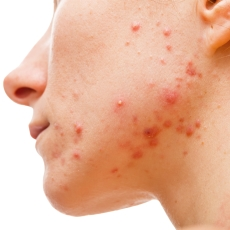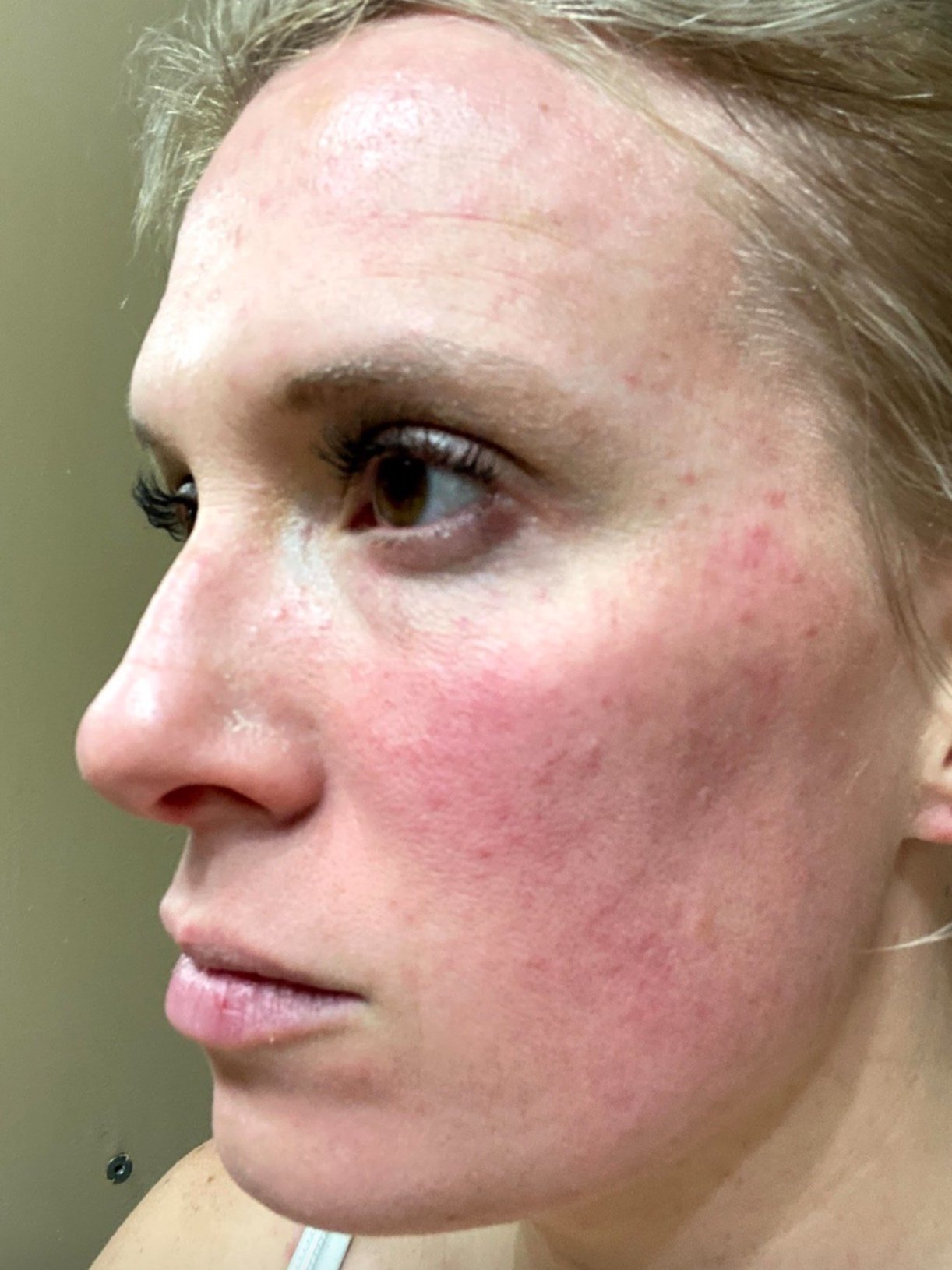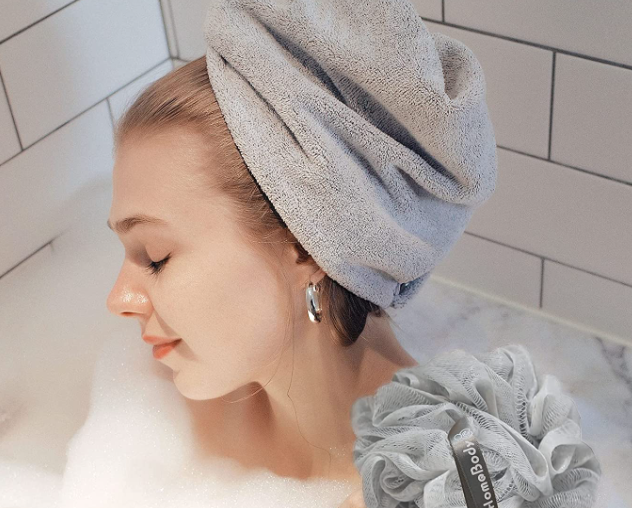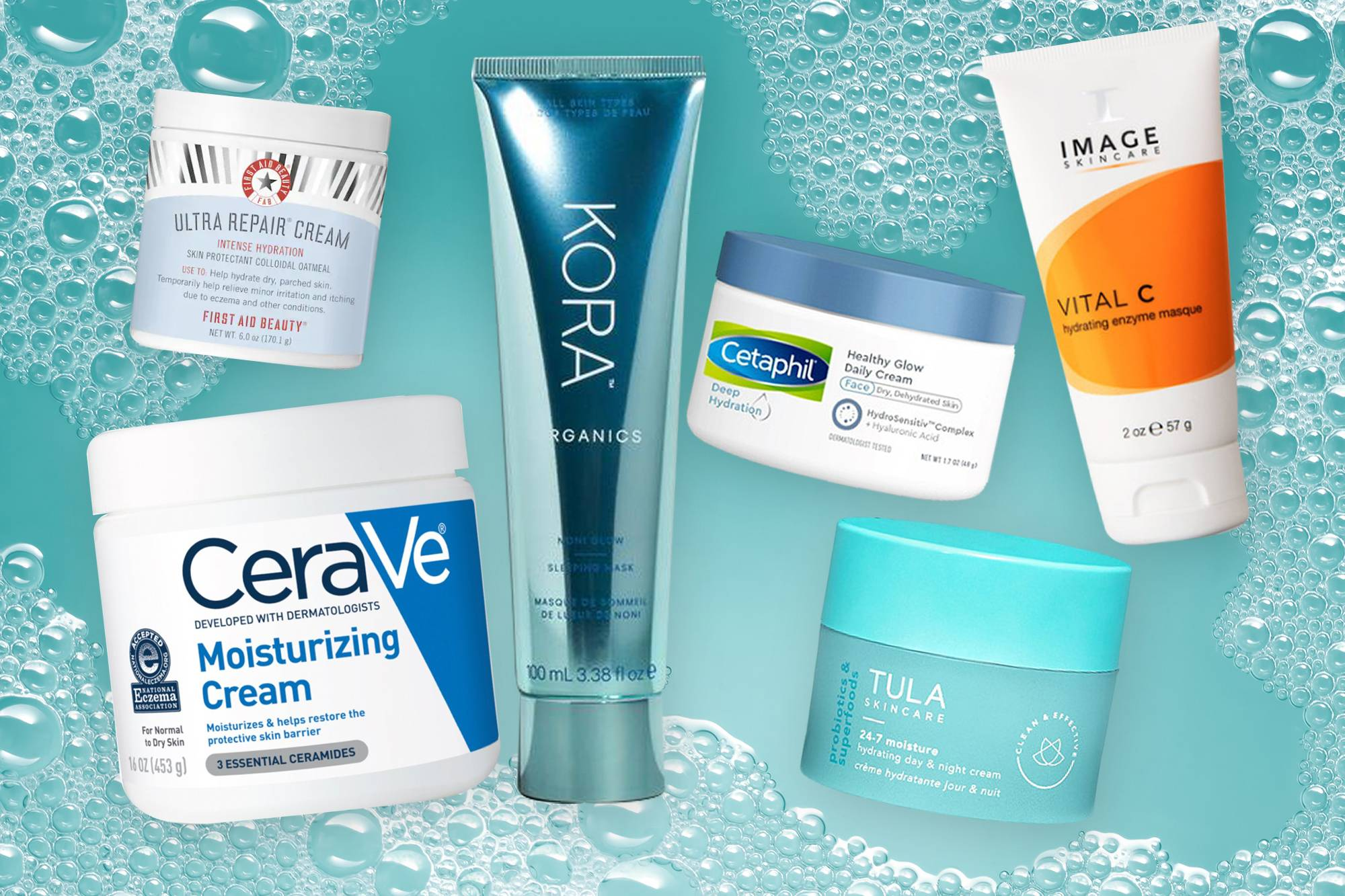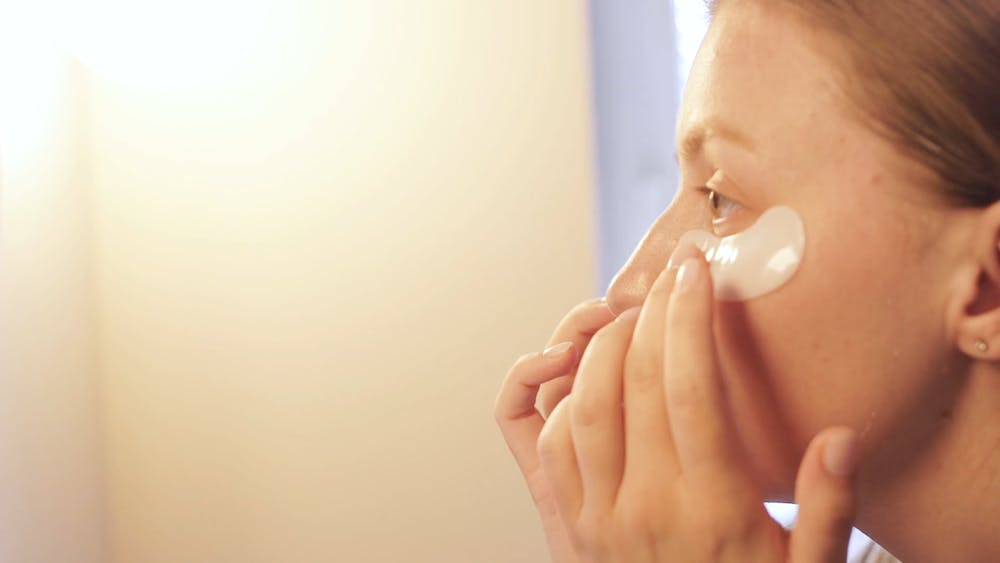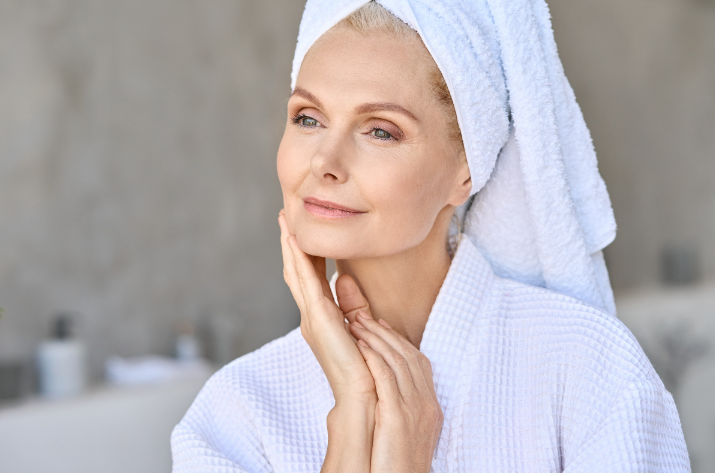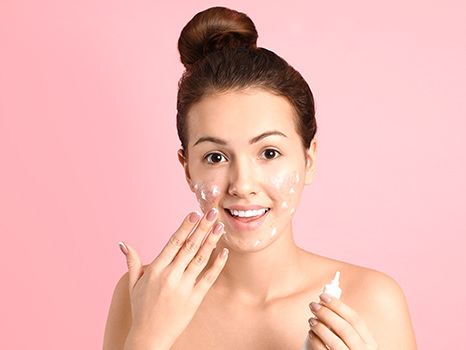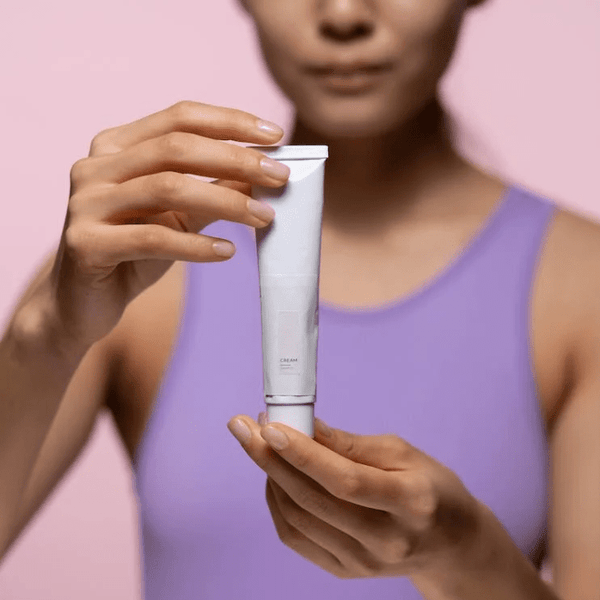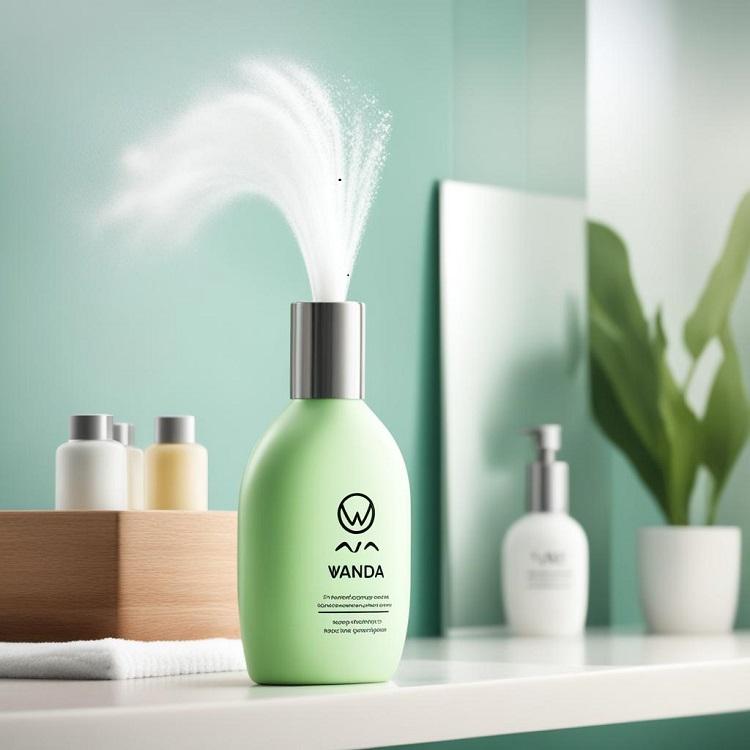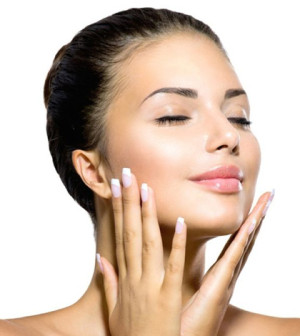Glowing Safe Skincare During Pregnancy: What To Avoid
Safe Skincare During Pregnancy: Nourish Your Glow with Confidence!

How to Eat Healthy and Nourish Your Skin During Pregnancy.
Pregnancy is a time of joy and anticipation, but it also changes a woman’s body, including her skin. Safe Skincare During Pregnancy is not just about maintaining beauty; it’s about protecting the well-being of both mother and child.
This guide dives into the essentials of nurturing your skin with safe, effective products that cater to the unique needs of pregnancy. From avoiding harmful ingredients to embracing nourishing alternatives, discover how to keep your skin healthy and radiant while ensuring safety for your little one. Let’s embark on a journey to glowing, safe skincare during this special chapter of your life! 🌟
The Importance of Safe Skincare When Pregnant
Pregnancy can alter your skin in numerous ways. Hormones and other physical changes in your body may make your complexion susceptible to breakouts, dryness, dark spots or Melasma, discoloration, and other skin-related concerns; luckily, there are numerous safe skin care products available that will keep it looking its best during gestation.
Pregnancy requires knowing which ingredients are safe and which to avoid, especially if you’re adding new elements to your beauty routine. Thankfully, there are numerous safe alternatives for common skincare ingredients like retinoids, hydroquinone, formaldehyde, and phthalates that you could incorporate.
Glycolic Acid Benefits for Pregnancy Complexion
Glycolic acid, a milk derivative considered safe for pregnant women, can improve your complexion without endangering the developing baby. Glycolic acid can also help address acne-prone or oily skin types and minimize fine lines and wrinkles while diminishing hyperpigmentation, redness, and discoloration in skin areas affected by acne or oiliness.
Hyaluronic Acid: A Pregnancy-Safe Moisturizer
Hyaluronic acid is another safe skincare ingredient worth including in your arsenal, providing benefits such as reduced moisture loss and helping diminish wrinkles, fine lines, and uneven skin tone. Furthermore, it makes an effective moisturizer without clogging pores or leading to acne breakouts.
Choosing the Right Sunscreen During Pregnancy
Physical sunscreen is one of the key components to keeping pregnant mothers’ skin safe during their pregnancies. While chemical sunscreens absorb UV rays into heat energy, physical sunscreens reflect them into space to protect from UVA and UVB rays that could otherwise harm skin cells.
Mineral-based sunscreens provide more nourishing and gentle protection for sensitive skin than synthetic counterparts without disrupting hormone levels in either mother or the growing baby. Daily application will help to avoid Melasma or any other skin issues.
Antioxidants such as vitamins E and C can also be safely used during gestation; these ingredients help combat free radicals that damage skin cells and can accelerate aging while at the same time protecting from sun damage.
If you have any doubts about what skincare products are safe for pregnant women, seek guidance from a physician and dermatologist. They may recommend products that won’t harm you and your developing baby.
 RESTORE YOUTHFUL VITALITY WITH HYDROESSENTIAL™ SERUM
RESTORE YOUTHFUL VITALITY WITH HYDROESSENTIAL™ SERUMExperience smoother, younger-looking skin with Hydroessential™ Serum, the ultimate solution for aging skin. Crafted with all-natural ingredients and backed by science, this serum targets wrinkles, fine lines, dark spots, and blemishes, leaving your skin flawlessly radiant. Our serum is easy to incorporate into your daily routine, delivering visible results without any greasiness. Try Hydroessential™ today and witness a revitalized, vibrant complexion like never before. Secure your bottle now and embark on a journey to timeless beauty.
FOR YOUR SAFETY CLICK HERE TO BUY FROM THE OFFICIAL HYDROESSENTIAL WEBSITE
Skincare Ingredients to Avoid During Pregnancy
Pregnancy can cause many physical changes in women’s bodies, from hormone release and blood flow regulation to altered immunity levels, which could affect skin conditions such as redness, rashes, dry patches, and breakouts.
As such, pregnant women need to be mindful of what they put on their skin during gestation, particularly skincare products containing chemicals that could irritate a mother-to-be’s more delicate skin.
Hazardous Ingredients
- Retinoids, Benzoyl Peroxide, Salicylic Acid: Linked to birth defects and developmental issues in fetuses.
- Hydroquinone, Aluminum Chloride: May be hazardous during gestation.
- Parabens, Tetracycline, Dihydroxyacetone, Formaldehyde: Best avoided for a safe gestation environment.
Effects of Specific Ingredients
- Benzoyl Peroxide: Can inflame the skin and reduce blood flow to the fetus, potentially affecting heart, brain, and spinal cord development.
- Vitamin A Derivatives (Retinol, Retinyl Palmitate): Associated with heart, brain, and head deformities in fetuses.
Safe Alternatives
- Hyaluronic Acid: A safe and natural moisturizer that can reduce fine lines and wrinkles, suitable for pregnancy-safe beauty treatments.
Precautions
- Read Labels: Not all skincare products are unsafe; it’s important to read labels and choose products with safe ingredients.
- Consult Healthcare Providers: For any doubts, consult a physician or dermatologist for product recommendations.
Remember, while some ingredients are universally advised against, others may be safe in certain products or quantities. Always consult with healthcare professionals for personalized advice.
Safe Skincare Products for Pregnant Women
As your hormone levels rise during gestation, your skin could become extra-sensitive and require additional TLC; perhaps you have noticed changes (such as dry patches, dark spots, stretch marks, or new moles) since becoming pregnant. Adapt your skincare routine accordingly for optimal outcomes during this stage of your journey!
Are You Pregnant And Need Safe Skincare Products? Look No Further. Here, we have collected some dermatologist-recommended skincare items to help maintain healthy, radiant skin during this special time of your life. We hope our list provides some useful options.
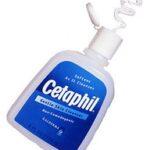 Cleanser is an essential step in any skincare regimen. We suggest Cetaphil for this purpose – its multitasking qualities allow it to quickly wash away dirt, oil, and makeup without drying your skin! The ideal cleanser should gently remove makeup while cleansing pores without leaving you with greasy skin or redness.
Cleanser is an essential step in any skincare regimen. We suggest Cetaphil for this purpose – its multitasking qualities allow it to quickly wash away dirt, oil, and makeup without drying your skin! The ideal cleanser should gently remove makeup while cleansing pores without leaving you with greasy skin or redness.
This formula is fragrance- and paraben-free, packed with natural ingredients like shea butter and jojoba oil to soothe and moisturize the skin. Additionally, we highly recommend Wonder Pore Deep Foaming Cleanser as an acne treatment; it helps clear away blemishes while simultaneously keeping pores clear.
Hyaluronic acid is another essential component to look out for, as it helps plump your skin’s texture and add moisture. Hyaluronic acid can also reduce fine lines caused by pregnancy hormones and hyperpigmentation that have occurred as a result.
Sunscreen should always be part of any skincare routine. Still, during pregnancy, you’ll want to be particularly wary about what ingredients your sunscreen contains. In particular, try to steer clear of products containing retinoids or other ingredients that could harm the baby’s development.
Over-the-counter beauty products at your local department store or pharmacy often contain these ingredients; just read their label carefully and consult your OB or dermatologist before purchasing to ensure it’s safe for you and your baby.
Tips for Maintaining Healthy, Glowing Skin
Pregnancy can bring about many changes, and your beauty routine may need to adapt as you go through this magical time.
No matter if you’re pregnant and worried about stretch marks or excited to experience a rosier complexion, there are numerous things you can do to ensure that your skin stays radiant and healthy during this new stage. Below are some helpful tips to ensure glowing skin while safeguarding your unborn baby’s safety.
Complete Guide To Skincare For Seniors: Dryness, Bruising (wherecanibuythat.us)
Before anything else, ensure that your body gets enough of what it needs during this period. A diet full of fresh fruits, vegetables, lean proteins, and healthy fats will keep your skin glowing and healthy.
Applying sunscreen daily is another way to improve the overall appearance of your skin, providing essential sun protection against sun damage and pregnancy-induced sun sensitivity. Choose broad-spectrum SPF protection, as this could protect you even better!
Use a natural face wash free from fragrances and harmful chemicals to cleanse and refresh your skin, helping maintain its fresh, soft appearance. This will boost your confidence level during pregnancy and help preserve that glowy look!
Finally, investing in a high-quality eye cream is recommended to reduce dark circles and fine lines while simultaneously moisturizing your delicate eye area. Incorporating an eye mask may also help reduce puffiness and promote circulation.
If you suffer from breakouts, a pregnancy-safe vitamin C serum could effectively manage them and support overall skin health and beauty. Not only will this boost collagen and elastin production, but it will also aid with overall skin radiance and overall wellness.
If your skin is dry or prone to breakouts, coconut oil could be needed to restore soft, glowing skin while keeping breakouts at bay. Coconut oil has antibacterial and soothing properties, which may help.
DIY Face Masks that are Safe and Beneficial for Pregnant Women

DIY Face Masks for Glowing and Safe Skincare During Pregnancy.
- Banana and Almond Mask: This mask is great for anti-aging and nourishing your skin. You will need a ripe banana, a tablespoon of almond oil, and a teaspoon of honey. Mash the banana and mix it with the almond oil and honey. Apply the mask on your face and neck and leave it for 15 minutes. Rinse with warm water and enjoy your smooth and glowing skin.
- Milk and Honey Mask: This mask is ideal for moisturizing dry skin and soothing irritation. You will need a quarter cup of milk, two tablespoons of honey, and a cotton ball. Warm the milk slightly and add the honey. Stir well until the honey dissolves. Dip the cotton ball in the mixture and apply it to your face. Leave it for 10 minutes and then wash with cold water.
- Cucumber and Black Tea Mask: This mask is perfect for sensitive and blemish-prone skin. It has anti-inflammatory and antioxidant properties that help hydrate and calm your skin. You will need half a thinly sliced cucumber, a cup of black tea, a tablespoon of honey, and a few drops of essential oil (rosewood or lavender). Prepare the black tea and add the honey and essential oil. Stir well and add the cucumber slices. Let them soak for a few minutes, then place them on your face. Relax for 15 minutes and then remove the slices and rinse with water.
- Blueberry and Yogurt Mask: This mask is suitable for oily and acne-prone skin. It contains natural alpha-hydroxy acids (AHA) that help exfoliate and cleanse your pores. You will need a quarter cup of fresh blueberries, two tablespoons of plain yogurt, and a teaspoon of lemon juice. Blend the blueberries and yogurt until smooth and add the lemon juice. Apply the mask on your face and leave it for 10 minutes. Wash with lukewarm water and pat dry.
These are some DIY face masks you can try during pregnancy. They are easy to make and use natural ingredients that are safe for you and your baby. Remember to do a patch test before applying any mask to check for allergies or sensitivity.
Also, consult your healthcare provider if you have any doubts or concerns about your skincare routine. I hope you enjoy these masks and have a wonderful pregnancy!
References: Skincare During Pregnancy
Skin and hair changes during pregnancy: MedlinePlus Medical Encyclopedia


